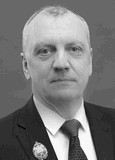Polyfunctionality of hydrogenic locomotion as motor substrates of applied swimming
Keywords:
hydrogen locomotion, rescue techniques, water-supported strokes, economization of equipment, replacement exercises.Abstract
Objective of the study was to develop and substantiate a technological and pedagogical model for improving the applied swimming skills of rescue technicians in the water area by replacing hydrogen locomotion.
Methods and structure of the study. At the first stage, technical elements preferred for replacement were identified. The integral expert assessment of the effectiveness of locomotor movements was calculated using the arithmetic mean method based on the use of qualimetry algorithms. At the second stage, the productivity of using replacement exercises with the participation of rescue technicians in the water area at the age of 32.5±0.5 years was assessed.
Results and conclusions. New possibilities for programming neuromuscular structures that ensure the functional implementation of hydrogenic locomotion in existing swimming combinations were achieved by generating a higher power regime for strokes; structural-kinetic coupling of rowing movements with the performance of the respiratory function during swimming; reducing hydrodynamic resistance forces; maintaining a stable body position in the water. The effectiveness of the replacement impact model is due to the structural and functional modification of the training of rescue service specialists in water areas, achieved through the use of transformative and integrating exercises.
References
Bolotin A.E., Poniasov O.E., Prigoda K.G., Vasilyeva E.A. Faktory, vliyayushchiye na effektivnost vypolneniya starta v plavanii brassom. Teoriya i praktika fizicheskoy kultury. 2023. No. 8. pp. 86-88.
Bolotin A.E., Van Zwieten K.Ya., Poniasov O.E., Timchenko N.M., Aganov S.S. Otsenka urovnya trenirovannosti sportsmenok v plavanii na osnove analiza pokazateley variabelnosti serdechnogo ritma. Teoriya i praktika fizicheskoy kultury. 2020. No. 7. pp. 10-12.
Zyukin A.V., Poniasov O.E., Bolotin A.E. et al. Kontrol perifericheskoy gemodinamiki plovtsov kategorii «Masters». Teoriya i praktika fizicheskoy kultury. 2020. No. 12. pp. 67-69.
Poniasov O.E., Pugachev I.Yu., Paramzin V.B., Raznovskaya S.V. Kinematicheskiy analiz tekhniki plavaniya na osnove sinkhronnoy videozapisi lineynogo dvizheniya. Teoriya i praktika fizicheskoy kultury. 2023. No. 1. pp. 14-16.
Pugachev I.Yu., Paramzin V.B., Raznovskaya S.V., Poniasov O.E. Formirovaniye ustoychivosti polozheniya dlya strelby v sluzhebnom dvoyeborye. Teoriya i praktika fizicheskoy kultury. 2022. No. 6. pp. 49-51.
Shtamburg I.N., Poniasov O.E., Grachev K.A., Novikov A.I. Ekonomizatsiya tipologicheskikh kombinatsiy tekhniki prikladnogo plavaniya pri obuchenii kursantov voyennykh vuzov. Teoriya i praktika fizicheskoy kultury. 2016. No. 2. pp. 16-17.
Bolotin A.E., Bakayev V., Ponimasov O.E., Vasilieva V. Peculiarities of respiratory functions in qualified swimmers exposed to multidirectional physical loads. Journal of Human Sport and Exercise. 2022. Vol. 17. No. 4. pp. 860-866.


